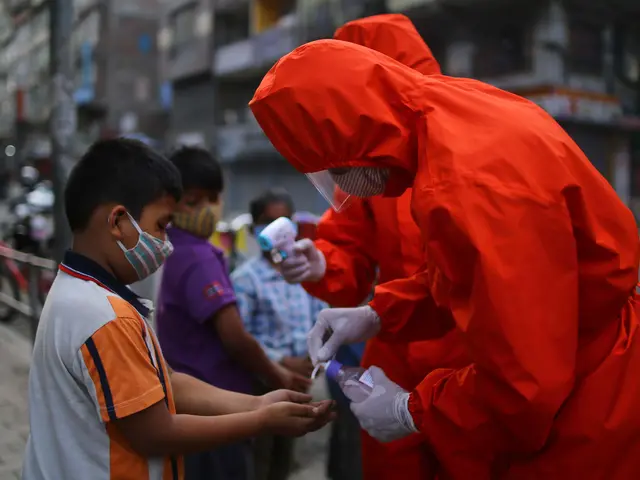Under the over-two-month COVID-19 lockdown in Nepal, economic activities have plummeted leaving many jobless. On the eve of World Day against Child Labor, which falls on Friday, child rights activists expressed concerns that the economic downturn could force more children into child labor.
"Daily wage workers and even many middle class families have been displaced due to the COVID-19," said Kiran Thapa, a child rights activist who is also the president of Consortium Nepal, an organization working for child participation, on Thursday.
"The families seeking the ways of fulfilling their basic needs will amplify the risk of bringing thousands of children back to the labor market," said Thapa.
The International Labor Organization has reported that child labor is declining at a rate of 100,000 every year in Nepal.
"Though there is no official updated data on child labor, the number of child labor (in Nepal) has halved from 1.6 million to 800,000," said Writu Bhatta Rai, officer incharge at Swatantrata Abhiyan, an organization working against forced child labor.
The face of child labor has changed over the years. Children used to work in restaurants, houses and public transport but nowadays they are found to be working in embroidery workshops, brick kilns and even in night clubs.
Rai said that the COVID-19 outbreak has intensified the risk of child labor amid the economic hardship. "Huge number of migrant workers are set to return back from abroad as a result of COVID-19's impact in the respective employer country. This will impel families under the poverty line to be in the high risk of falling into this cycle of child labor," she told Xinhua on Thursday.
Similarly, Narendra Dangol, chairperson at Children as Zones of Peace National Campaign (CZOP), said that the economic crisis will divert poor children and their parents' focus from study to survival needs. "This will lead to dropping out of school and entering the labor market," he said.
"The government is working on legal reforms and is also preparing action plans to completely curb child labor by 2024," said Sujan Jojiju, under secretary at the Child Labor Section of the Ministry of Labor, Employment and Social Security.
Amid the COVID-19 outbreak and the economic fallout, child rights activists warned of achievement relapse in eradicating child labor. Dangol said people will choose survival money over school until and unless the government introduces packages and plans for children's retention in schools.
"Children rescued from the vicious web of child labor are reinstated but there are still difficulties due to the lack of strong legal ground for the issue," Jojiju told Xinhua on Thursday.
Meanwhile, the government should collect data through the local level of those who could fall victim to child labor and employ them through the Prime Minister's Employment Program, Rai said.
Thapa, who has been working in the field of children for two decades, believed that the risk can be minimized by providing vocational trainings for children and assure poor people's involvement in income generating activities along with periodic counseling.
Rights activists also said that good coordination between government ministries that deal with children, labor and education is needed to prepare a joint plan.
"We have circulated a circular amongst all local levels to monitor such events and also encourage trade union, businesses and other industries to boycott child labor," Jojiju said.
 简体中文
简体中文

